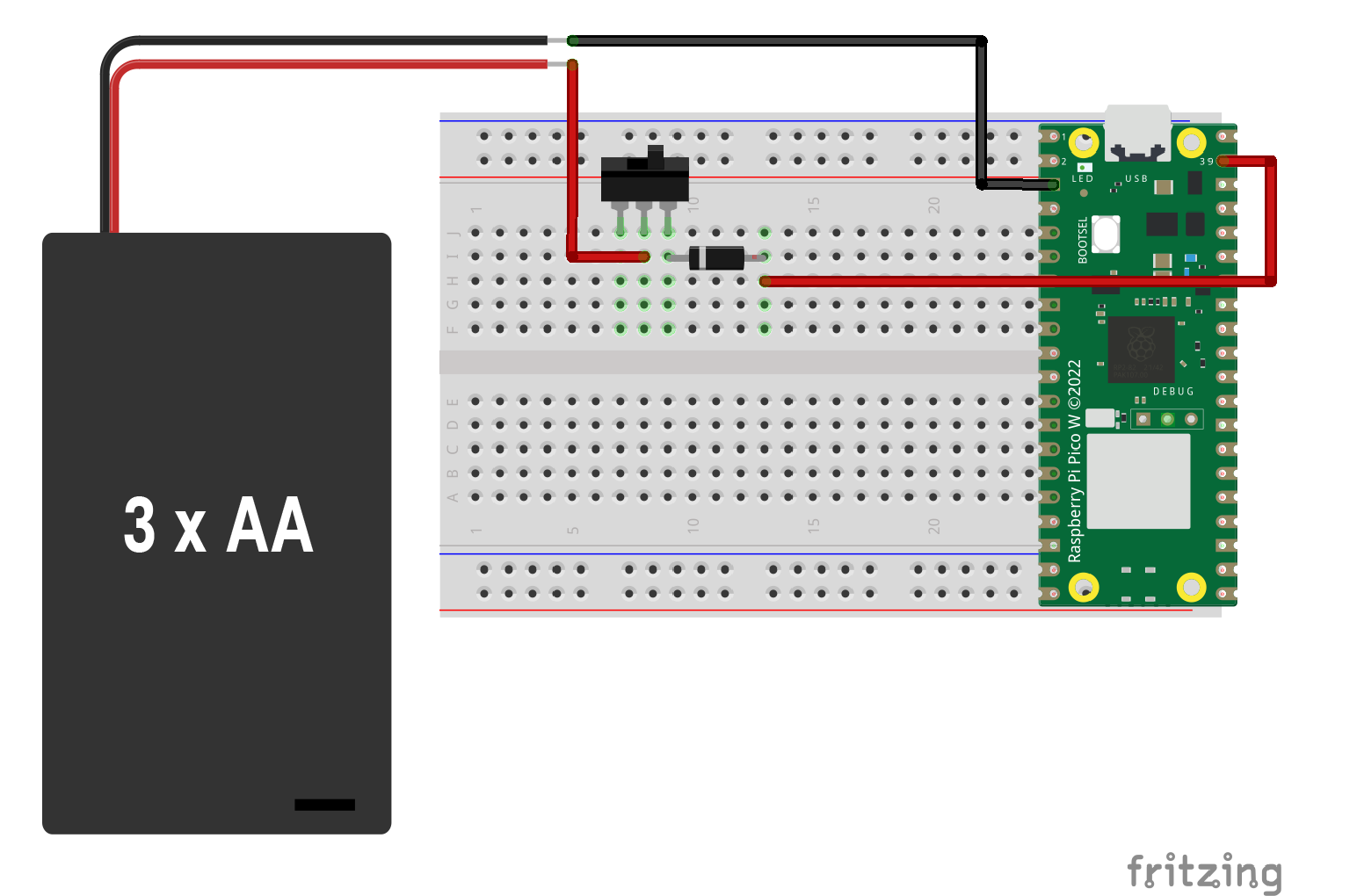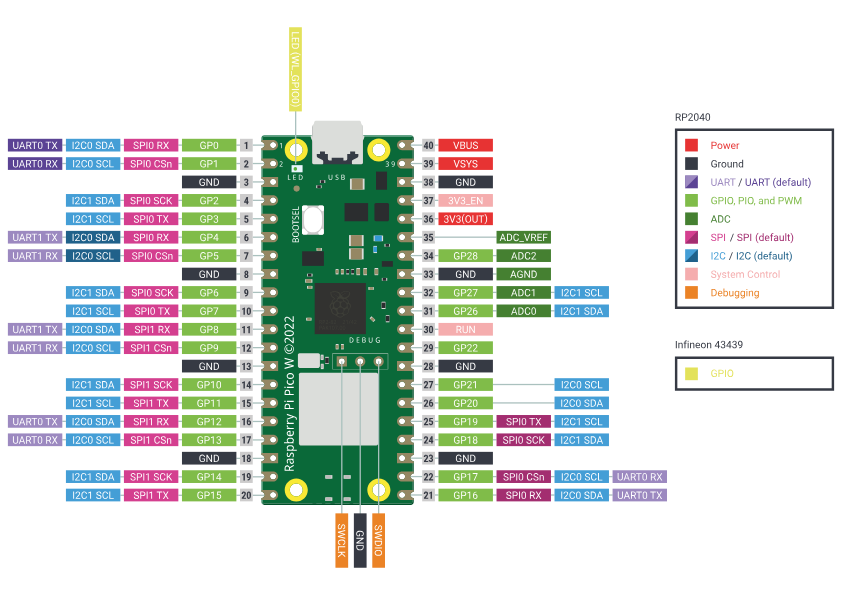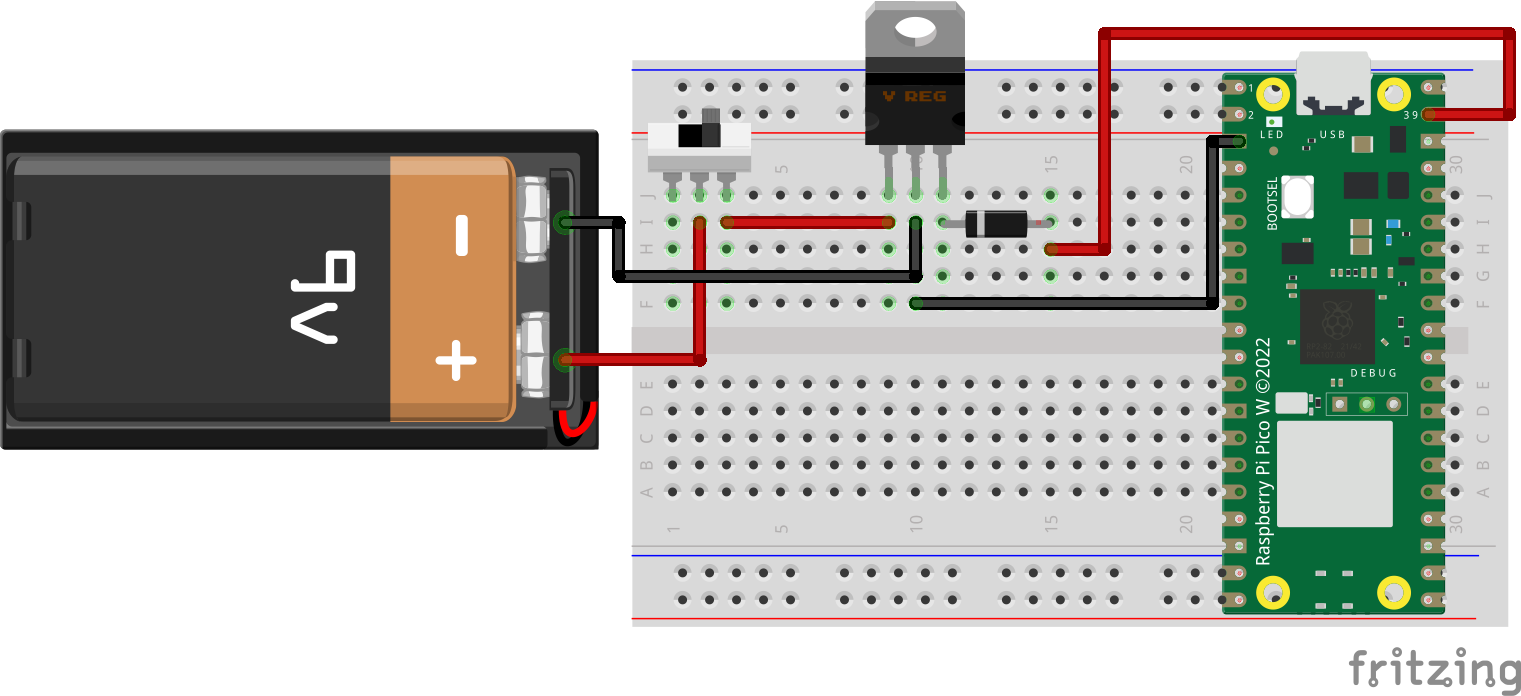How to make two Raspberry Pi Pico communicate via Wifi
PoweringWifi the Raspberry Pi PicoCommunication
TheBefore easiest wayheading to powercommunication abetween Picotwo is through the USB cable either to a computer or a phone charger. If you are going for a wireless design,pico, you can usetry batteriescontrolling aspico well.via This tutorial will demonstrate how to power a Picowifi with ayour 9Vcomputer batteryfirst, orsee 3tutorial AA batteries.here.
RaspberryServer Pi Pico pinoutCode
You have to find out the pinout of the model you are using. The pins you are looking for are
VSYSandGND. In this tutorial, a Pico W is used.
RaspberryClient Pi Pico's Power NeedCode
VSYSWhy these parts are needed
Switch: When we are using batteries to power the microcontroller, a switch is preferred. Some battery holder has a built-in switch which will be more convenient for you. With a switch, you can turn off the Pico when not in use and not drain the battery.LM7805: The LM7805 is a popular voltage regulator integrated circuit (IC). It is a positive voltage regulator that provides a stable and fixed output voltage of +5 volts. It is widely used in electronic circuits to regulate the voltage and ensure a consistent and reliable power supply. It can accept an input voltage in the range of 7V to 35V, depending on the specific model, so you will need this when you are using a power supply with a voltage higher than 5V.Diode: - A diode is a semiconductor device that allows current to flow in one direction while blocking it in the opposite direction. In other words, it acts as a one-way valve for electric current. We need a diode for safety to prevent one power source from back-feeding the other. Raspberry Pi can have two power sources at the same time and there is a risk of unwanted power flow between the two power sources. Schottky diode is preferred for its low voltage drop, but any others should work with a bit of voltage drop around 0.2-0.6V.
9V battery
Part needed: switch, LM7805 & Any diode
3 AA batteries
Part needed: switch & Any diode



